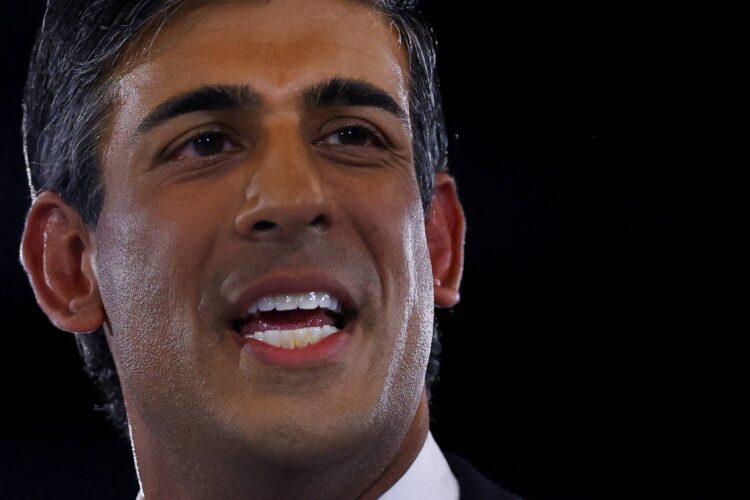By Ben Kerrigan-
UK Prime minister, Rishi Sunak, unveiled plans on Wednesday for a robust police crackdown on protests causing “alarm or distress” at various venues, including parliament, as part of the UK government’s efforts to bolster its stance on pro-Palestinian demonstrations in the wake of the Israel-Hamas conflict.
A new protocol, agreed upon between Downing Street and police forces, outlines stringent measures to ensure that protests at MPs’ offices and democratic spaces such as parliament and town halls do not impede access or usage of these areas or cause distress to attendees.
Sunak said it was “vital for maintaining public confidence in the police”.
In comments that have raised the eye brows of civil liberties groups, the prime minister also demanded a crackdown on protests outside parliament, political parties’ offices and town halls that may prevent use of a venue or “cause alarm harassment or distress”.
The move comes after a roundtable meeting with police chiefs on Wednesday in Downing Street to discuss how to handle the intimidation of MPs, candidates and councillors.
Under this protocol, “intimidatory protests should trigger an immediate response” by the police, as stated in the Defending Democracy Policing Protocol published by Number 10.
The announcement comes on the heels of Home Secretary James Cleverly’s unveiling of a £31 million security package aimed at enhancing MPs’ security.
Cleverly emphasized the strain pro-Palestinian demonstrations have placed on policing, urging for an end to regular Gaza protests in London, citing significant pressure.
The proposed crackdown follows concerns voiced by several MPs regarding their safety amidst escalating threats and intimidatory behavior from the public following the Israel-Hamas conflict.
Reports emerged of more than 60 pro-Palestinian protesters besieging the constituency home of former Tory minister Tobias Ellwood for three and a half hours earlier this month.
Sunak condemned such actions, stating, “We simply cannot allow this pattern of increasingly violent and intimidatory behavior, which is, as far as anyone can see, intended to shut down free debate and stop elected representatives from doing their job.”
House of Commons Speaker Sir Lindsay Hoyle defended his handling of a recent chaotic vote on a ceasefire in Gaza, framing it as an attempt to safeguard MPs.
Hoyle justified his decision to break with Commons convention, allowing a vote on a Labour amendment to a parliamentary motion about Gaza to offer the main opposition party’s MPs an opportunity to support a ceasefire.
The Israel-Hamas conflict, which saw Hamas launching attacks on southern Israel on October 7, resulting in over 1,200 casualties and approximately 250 hostages according to Israeli officials, sparked retaliatory offensives by Israel in Gaza, leading to over 29,000 casualties according to Palestinian officials.
Amidst these developments, more than 90 MPs have signed a motion of no confidence in Hoyle following the botched vote, with many expressing concerns about the Speaker’s deviation from parliamentary convention in response to public intimidation.
The proposed policing measures follow a recommendation from a senior government advisor to expand the use of special orders to swiftly quell public protests around democratic venues, including parliament, council buildings, and MPs’ offices.
Ben Jamal, director of the Palestine Solidarity Campaign, criticized the move, deeming it “outrageous” for the government to grant police greater powers to curb protests around democratic buildings, arguing that existing police powers are already excessively broad and utilized in a repressive manner.
According to the agreed protocol between Downing Street and the police, additional patrols will be provided in local communities “in response to potential flashpoints,” which could include deployments at MPs’ personal residences and constituency offices to prevent criminal damage, graffiti, and unlawful protests.
The protocol also emphasizes that protests at MPs’ homes should be treated as “intimidatory,” and as such, police should possess adequate powers to disperse demonstrators effectively.
This proposed crackdown raises questions about the balance between preserving democratic freedoms and ensuring public safety in the aftermath of contentious global conflicts.

